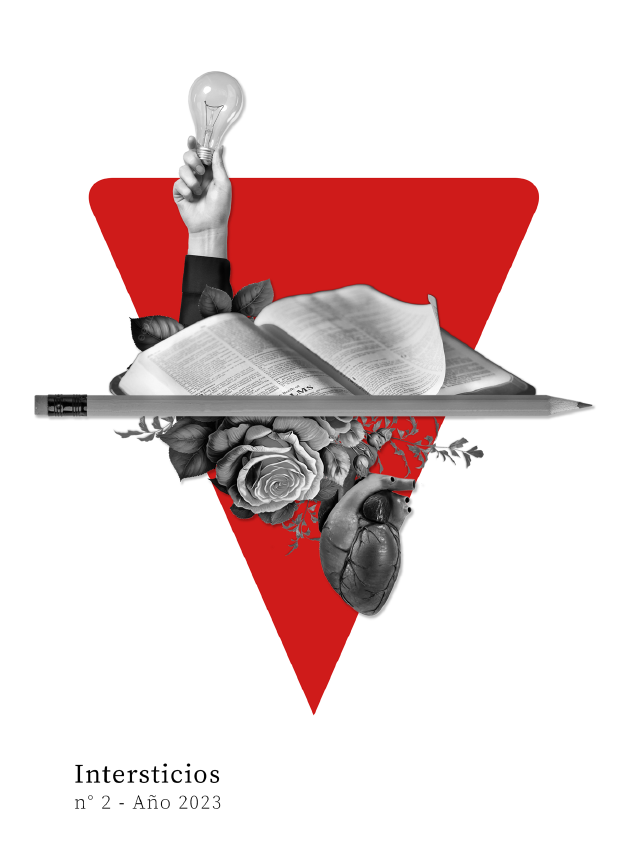HAL9000. The science´s products and the assimilation challenge. The cases of algorithms, digital journalism and transhumanism.
Abstract
Science and technology gravitate in everyday life, in the economy and in development, and other problems and ethical dilemmas arise. This work argues that the current bottleneck that we face as humanity emerges from the fact that scientific knowledge is produced whose products exceed the possibilities of human intellection, assimilation and foresight. The applications of knowledge of scientific origin produce biological alterations that affect humanity itself at the same time that it is the same biological conditions that are overcome by the possibilities enabled by technology.
We are a subject of knowledge that loses its place in the face of its objects of knowledge, in the face of robots, algorithms, the abundance of information, and endangers its agency in the face of genetic alteration techniques.
The interest of this work is to put in relation the concepts that are poured from the philosophy of science in relation to the new phenomena of meaning that are produced in digital environments, the commercial and political manipulation that algorithms produce and some derivations of what It is framed in transhumanism, above all about inequality of access. The critical analysis of authors is nuanced with references to science fiction films and literature.
Downloads
References
Boczkowski, P. J. (2022). Abundancia. La experiencia de vivir en un mundo lleno de información (UNSAM Edita ed.).
Boczkowski P. Y Mitchelstein E. (2026). La agenda del público en la web. Clicks Modernos http://revistaanfibia.com/ensayo/clicks-modernos/
Boczkowski P. Y Mitchelstein E. (2015) La brecha de las noticias. La divergencia entre las preferencias informativas de los medios y el público, Manantial.
Boczkowski P. Y Mitchelstein E. (2016) La tiranía del click. Quién marca la agenda informativa. Revista Anfibia. Recuperado de: http://revistaanfibia.com/ensayo/la-tirania-del-click/
Calvo, E., & Aruguete, N. (2020). Fake news, trolls y otros encantos: cómo funcionan (para bien y para mal) las redes sociales. Siglo Veintiuno Editores.
Cerezo, P. (2017) En busca del modelo de negocio, Evoca Comunicación e imagen.
Gomis, L. (1997) Cómo se forma el presente. Paidós.
Gomis, L. (1997) Teoría del periodismo. Paidós.
Hopenhayn, D. “Martin Hilbert, experto en redes digitales: “Los algoritmos encontraron nuestras debilidades y las están aprovechando”, 15 de marzo 2020, https://www.latercera.com/la-tercera-domingo/noticia/martin-hilbert-experto-en-redes-digitales-los-algoritmos-encontraron-nuestras-debilidades-y-las-estan-aprovechando/LHZ3CMHRDZCFPOJQT7W4BIQDJU/
Jaimovich, D. (2020): “Qué cuenta “El dilema de las redes sociales”, el documental de Netflix que expone el lado más oscuro de nuestra adicción digital”, 15 de Septiembre de 2020
Lanusse,, N. (2020). “Redes Sociales: Todo Algoritmo Es Político”, Comisión De Investigaciones Científicas (CIC). Gobierno de la provincia de Buenos Aires. https://www.gba.gob.ar/cic/noticias/todo_algoritmo_es_pol%C3%ADtico
Pardo R. (2012). La Invención De La Ciencia: La creación de la cultura occidental a través del conocimiento científico. En Palma, H. y Pardo, R. (2012). Epistemología de las ciencias sociales. Perspectivas y problemas de las representaciones científicas de lo social (pp.17-41). Biblos.
Magnani, E. (2017). Big Data y Política. El Poder De Los Algoritmos. Nueva Sociedad, 269.
Palma, H. (2019). Mejoramiento genético en humanos. De la eugenesia al transhumanismo.
Palma, H. (2017). Los límites de las ciencias: una metáfora difusa. En Bril, V. y Sabugo. M. (2017), Arquitectura y ciudad: imaginarios fronterizos (pp.239-261). Ed. Diseño.
Retegui, L. (2020). Métricas y cuantificación del rendimiento individual de los periodistas: Un estudio en el interior de una sala de redacción. Austral Comunicación, 9(1), 45-67. https://doi.org/10.26422/aucom.2020.0901.ret
Retegui, L. (2017). Los procesos de organización del trabajo en la redacción de un diario. Un estudio a partir del diario La Nación, en el contexto digital (1995-2013). Universidad Nacional de Quilmes. Tesis doctoral inédita.
Scolari, C. y Rapa, F. (2019) Media Evolution. sobre el origen de las especies mediáticas. La Marca.
Scolari, C. (2019). ¿Cómo analizar una interfaz? In Documento de trabajo. Universitat Pompeu Fabra.
Schuliaquer, I. y Vommaro, G. (2020). Introducción: La polarización política, los medios y las redes. Coordenadas de una agenda en construcción. Revista SAAP, 14(2), 235-247.
Sosa Escudero, W. (2019). Big data: breve manual para conocer la ciencia de datos que ya invadió nuestras vidas. Siglo Veintiuno Editores Argentina.
Copyright (c) 2022 Intersticios

This work is licensed under a Creative Commons Attribution-NonCommercial-ShareAlike 4.0 International License.






